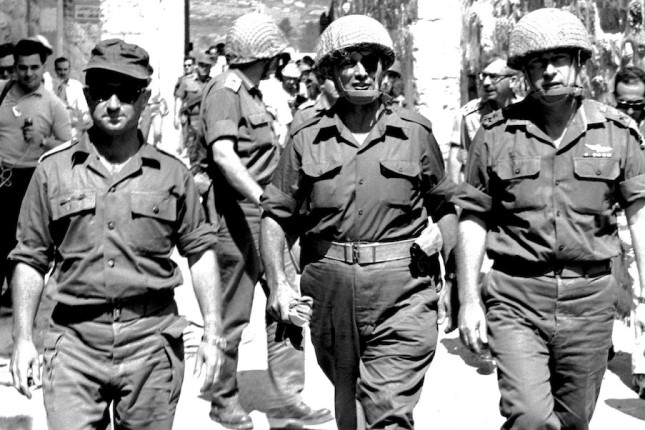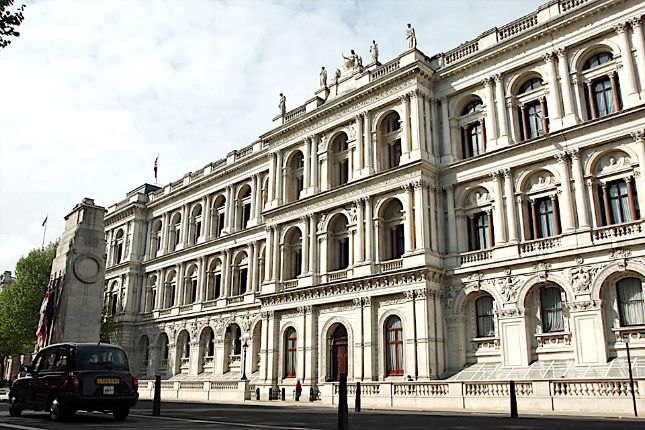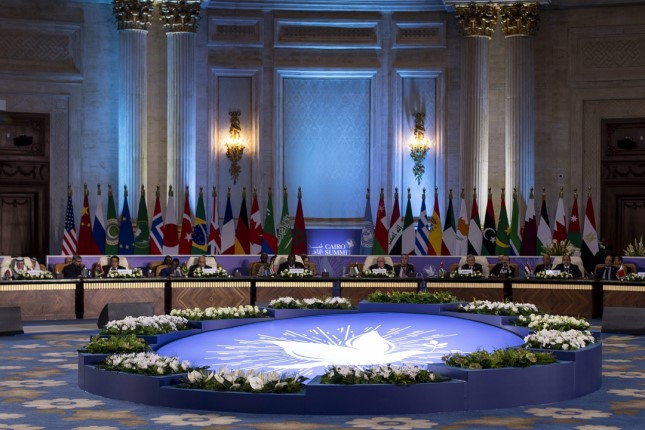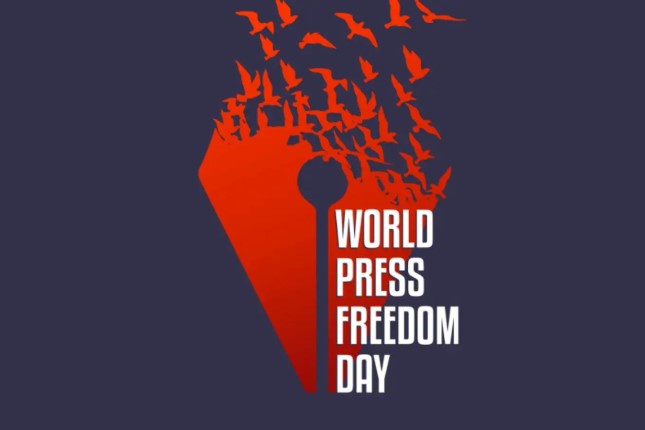At one time, the “Arab-Israeli Conflict” was Arab and Israeli. Over many years, however, it was rebranded. The media is now telling us it is a “Hamas-Israeli conflict.”
But what went wrong? Israel simply became too powerful.
The supposedly astounding Israeli victories over the years against Arab armies have emboldened Israel to the extent that it came to view itself not as a regional superpower but as a global power. Israel, per its own definition, became invincible.
Such terminology was not a mere scare tactic aimed at breaking the spirit of Palestinians and Arabs alike. Israel believed this.
The “Israeli miracle victory” against Arab armies in 1967 was a watershed moment. Then, Israel’s Foreign Minister Abba Eban, declared in a speech at the United Nations that “from the podium of the U.N., I proclaimed the glorious triumph of the IDF and the redemption of Jerusalem.
In his thinking, this could only mean one thing: “Never before has Israel stood more honored and revered by the nations of the world.”
The sentiment in Eban’s words echoed throughout Israel. Even those who doubted their government’s ability to prevail over the Arabs completely joined the chorus: Israel is unvanquishable.
Little rational discussion took place back then about the actual reasons why Israel had won and if that victory would have been possible without Washington’s complete backing and the West’s willingness to support Israel at any cost.
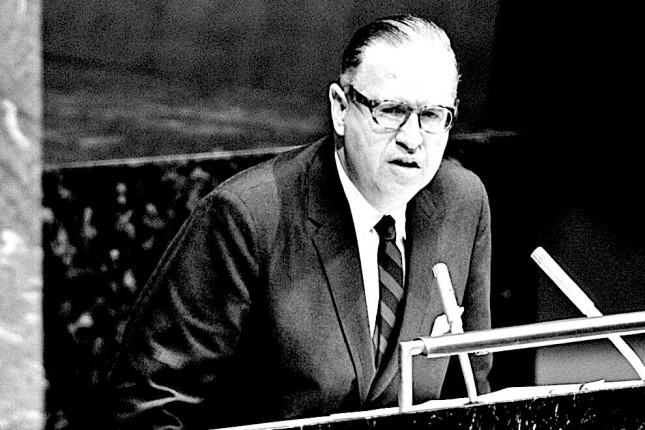
Israel’s Foreign Minister Abba Eban addressing U.N. General Assembly on June 19, 1967. Photo: UN Photo.
Israel was never a graceful winner. As the size of territories controlled by the triumphant little state increased three-fold, Israel began entrenching its military occupation over whatever remained of historic Palestine. It even started building settlements in newly occupied Arab territories, in Sinai, the Golan Heights and all the rest.
Fifty years ago, in October 1973, Arab armies attempted to reverse Israel’s massive gains by launching a surprise attack. They initially succeeded, then failed when the U.S. moved quickly to bolster Israeli defenses and intelligence.
It was not a complete victory for the Arabs, nor a total defeat for Israel. The latter was severely bruised. But Tel Aviv remained convinced that the fundamental relationship it had established with the Arabs in 1967 had not been altered.
And, with time, the “conflict” became less Arab-Israeli and more Palestinian-Israeli. Other Arab countries, like Lebanon, paid a heavy price for the fragmentation of the Arab front.
This changing reality meant that Israel could invade South Lebanon in March 1978 and then sign the Camp David Peace Accords with Egypt six months later.
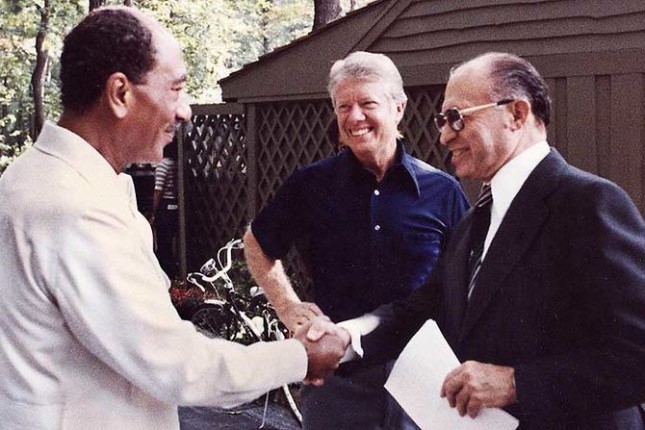
Egyptian President Anwar Sadat, U.S. President Jimmy Carter and Israeli Prime Minister Menachem Begin at Camp David in September 1978. Photo: U.S. government / Wikimedia Commons / Public domain.
While the Israeli occupation of Palestine grew more violent, with an insatiable appetite for more land, the West turned the Palestinian struggle for freedom into a “conflict” to be managed by words, never by deeds.
Many Palestinian intellectuals argue that “this is not a conflict” and that military occupation is not a political dispute but governed by clearly defined international laws and boundaries. And that it must be resolved according to international justice.
That is yet to happen. Neither was justice delivered nor an inch of Palestine retrieved, despite the countless international conferences, resolutions, statements, investigations, recommendations, and special reports. Without actual enforcement, international law is mere ink.
But did the Arab people abandon Palestine? The anger, the anguish, and the passionate chants by endless streams of people who took to the streets throughout the Middle East to protest the annihilation of Gaza by the Israeli army did not seem to think that Palestine is alone — or, at least, should be left fighting on its own.
Disastrous Isolation
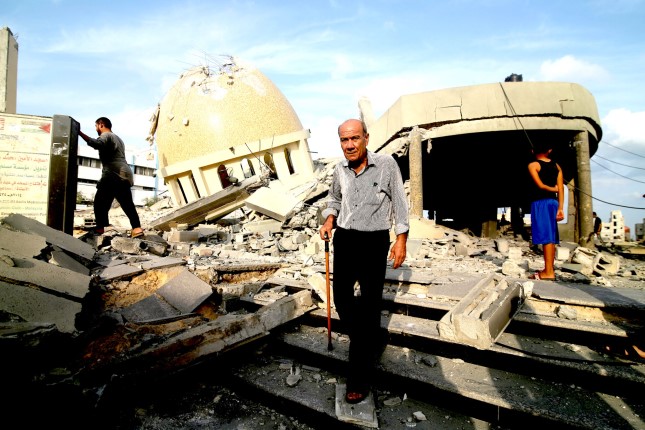
Palestinians in the ruins after an Israeli airstrikes in Khan Younis in the southern Gaza strip on Oct. 8. Photo: Mahmoud Fareed, Palestinian News & Information Agency or Wafa, in contract with APAimages, CC BY-SA 3.0)
The isolation of Palestine from its regional context has proven disastrous.
When the “conflict” is only with the Palestinians, Israel determines the context and scope of the so-called conflict, what is allowed at the “negotiations table,” and what is to be excluded. This is how the Oslo Accords squandered Palestinian rights.
The more Israel succeeds in isolating Palestinians from their regional environs, the more it invests in their division.
It is even more dangerous when the conflict becomes between Hamas and Israel. The outcome is a whole different conversation that is superimposed on the truly urgent understanding of what is taking place in Gaza, in the whole of Palestine at the moment.
In Israel’s version of events, the war began on Oct. 7, when Hamas fighters attacked Israeli military bases, settlements, and towns in the south of Israel.
No other date or event before the Hamas attack seems to matter to Israel, the West and corporate media covering the war with so much concern for the plight of Israelis and complete disregard for the Gaza inferno.
No other context is allowed to spoil the perfect Israeli narrative of ISIS-like Palestinians disturbing the peace and tranquility of Israel and its people.
Palestinian voices that insist on discussing the Gaza war within proper historical contexts — the ethnic cleansing of Palestine in 1948, the occupation of Jerusalem, the West Bank and Gaza in 1967, the siege on Gaza in 2007, all the bloody wars before and after — are denied platforms.
The pro-Israel media simply does not want to listen. Even if Israel did not make unfounded claims about decapitated babies, the media would have remained committed to the Israeli narrative, anyway.
Yet, suppose Israel continues to define the narratives of war, historical contexts of “conflicts,” and the political discourses that shape the West’s view of Palestine and the Middle East. In that case, it will continue to obtain all the blank checks necessary to remain committed to its military occupation of Palestine.
In turn, this will fuel yet more conflicts, more wars and more deception regarding the roots of the violence.
For this vicious cycle to break, Palestine must, once more, become an issue that concerns all Arabs, the whole region. The Israeli narrative must be countered, Western bias confronted, and a new, collective strategy formed.
In other words, Palestine cannot be left alone anymore.
Main photo: Chief of Staff Lt. Gen. Yitzhak Rabin, right, in the entrance to the old city of Jerusalem during the Six Day War, with Moshe Dayan and Uzi Narkiss, left, June 7, 1967 © Ilan Bruner / Wikimedia Commons / CC BY-SA 3.0.
Source: Consortium News.
